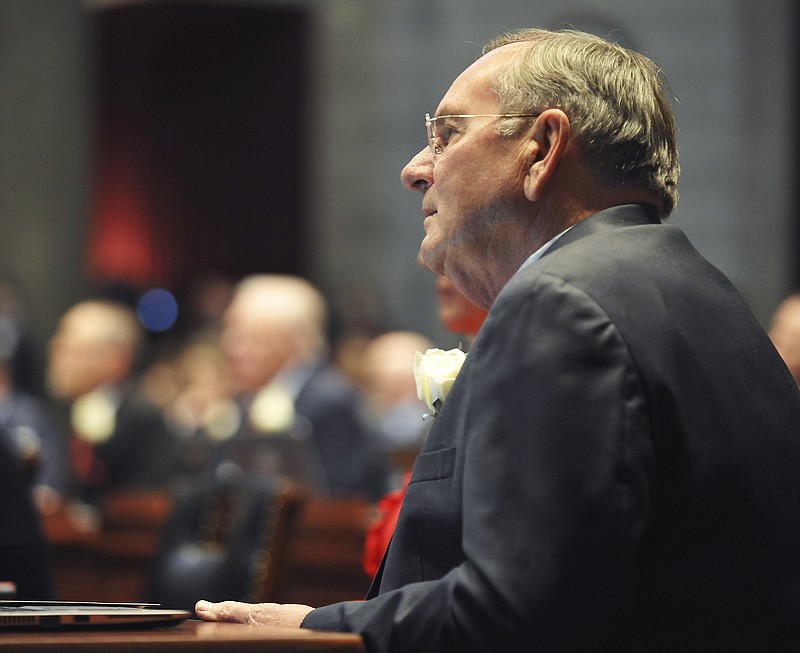On the last day of the 2019 General Assembly, legislation sponsored by a freshman lawmaker from Jefferson City passed the Missouri House and was sent to Gov. Mike Parson's desk for his signature.
After undergoing changes in the state Senate late Friday afternoon - with the end of the session two hours away - it seemed unlikely that House Bill 547, sponsored by state Rep. Dave Griffith, R-Jefferson City, would have a chance to be passed in the House.
But, following a late fiscal review, it was brought again to the House floor. It passed easily after about 10 minutes of debate.
Griffith said he's proud of the bill.
"The (Senate) change allows prosecutors to defer not only veterans, but other offenders to treatment courts," he said.
Currently, circuit courts aren't required to provide treatment courts - veterans treatment courts, adult treatment courts, DWI courts, family treatment courts and juvenile treatment courts.
But the bill would require each circuit court to establish a treatment court division before Aug. 28, 2021.
Preference is to be given to combat veterans - as shown on military service documentation that shows service in a combat theater, receipt of combat service medals or receipt of imminent danger or hostile fire pay or tax benefits.
Veterans treatment courts shall focus on substance abuse disorders, co-occurring disorders, or mental health disorders of defendants who are military veterans or current military personnel.
The way the bill reads now, Griffith said, means it provides for more training for prosecutors and other court officials.
State Rep. Shamed Dogan, R-Ballwin, said he couldn't support the bill because it included requirements for all treatment courts, to which law enforcement was opposed.
"They've lost my support on this - even though it's a very strong bill," Dogan said. "I think it's flawed."
Supporters said treatment courts are "very successful" in helping offenders, particularly veterans, turn their lives around.
The differences lawmakers had over the bill had to do with some wording, Griffith said.
"They said there is some unclear language," Griffith said. "I talked to prosecutors and defense attorneys. They are concerned about definitions on violent crimes. We can address that (in another bill)."

